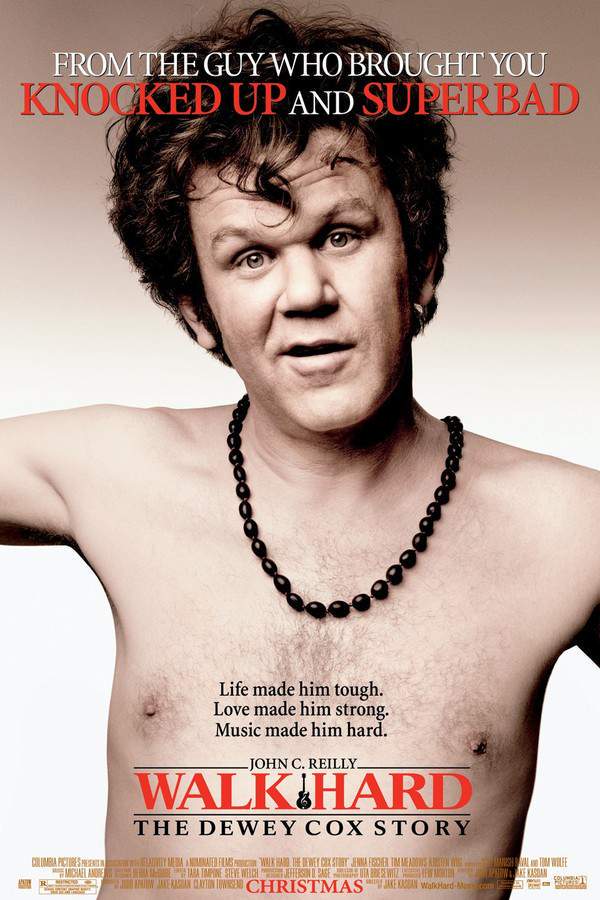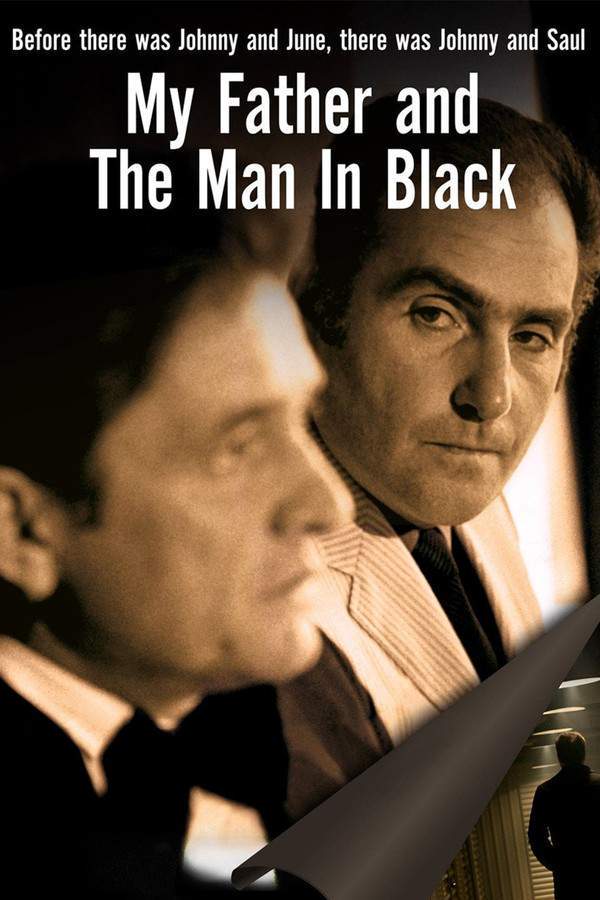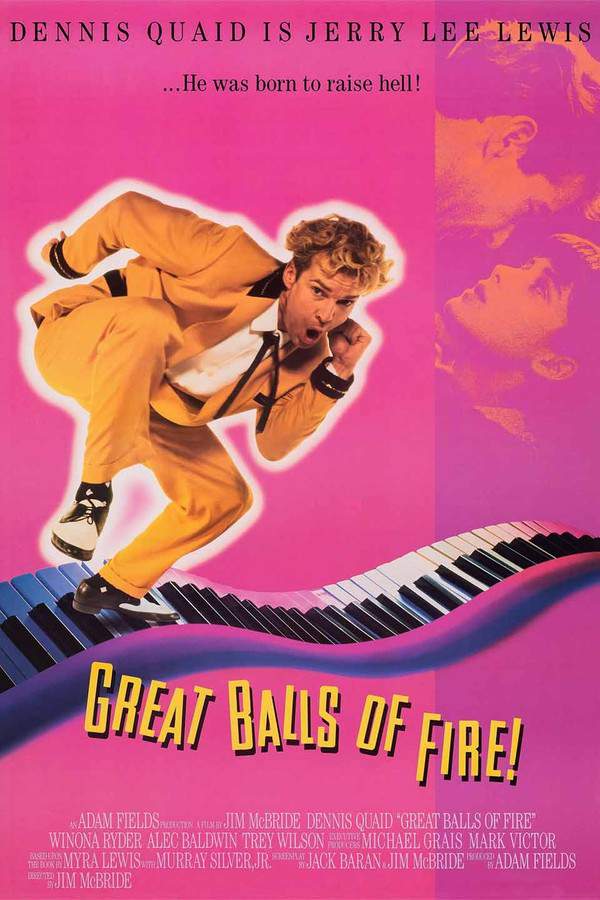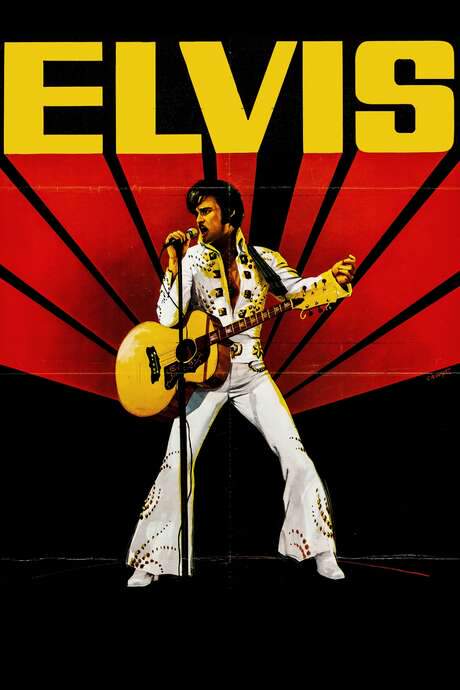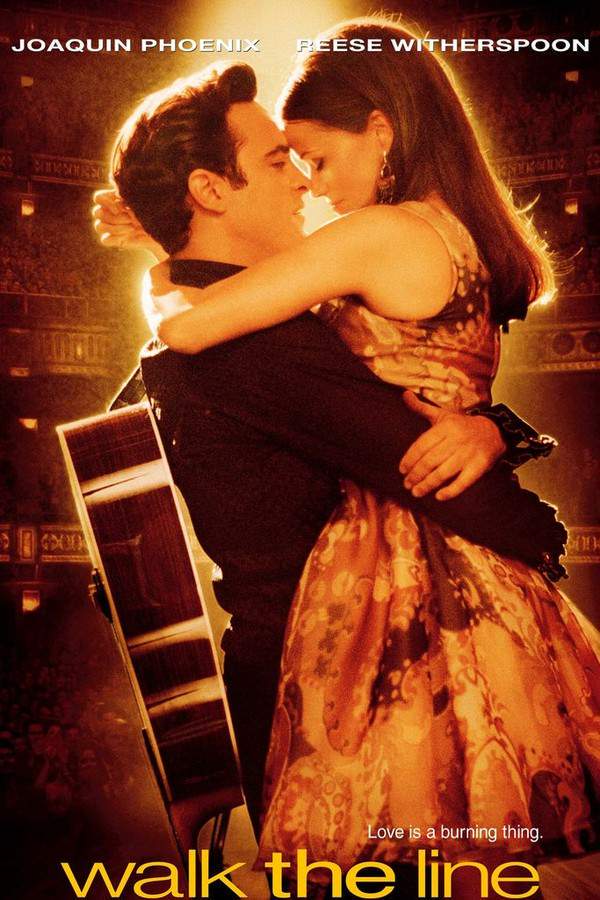
Walk the Line 2005
Directed by

James Mangold
Test your knowledge of Walk the Line with our quiz!
Walk the Line Plot Summary
Read the complete plot summary and ending explained for Walk the Line (2005). From turning points to emotional moments, uncover what really happened and why it matters.
In 1968, an electrifying atmosphere fills Folsom State Prison as inmates roar in enthusiasm for Johnny Cash’s band, while he finds himself alone backstage, haunted by visions of his past. Flashback to 1944, where Johnny, known back then as J.R., is a young boy navigating life on a cotton farm in Dyess, Arkansas. He sings hymns while his brother, Jack, aspires to become a pastor. Tragedy strikes when Jack’s accident with a table saw leads to his untimely death, intensifying the already strained relationship between J.R. and their father, Ray.
As the years progress to 1950, J.R. (played by Joaquin Phoenix) enlists in the United States Air Force, adopting the name Johnny Cash. His service takes him to West Germany, where he finds solace in strumming a guitar, ultimately giving birth to one of his most iconic songs, “Folsom Prison Blues.”
After being discharged, Johnny marries his girlfriend, Vivian Liberto, and relocates to Memphis, Tennessee. However, to support his burgeoning family, he takes up a job as a door-to-door salesman. An encounter with a recording studio sparks his ambition to form a band dedicated to gospel music. His band auditions for Sam Phillips, the mastermind behind Sun Records, and it’s after playing “Folsom Prison Blues” that they secure a contract.
As Johnny Cash and the Tennessee Two hit the road, Johnny encounters various artists, including the captivating June Carter (portrayed by Reese Witherspoon), with whom he sparks a passionate romance. However, as June navigates her tumultuous feelings following her divorce from Carl Smith, Johnny succumbs to the damaging effects of drugs and alcohol, causing their paths to diverge.
In a bid to rekindle his relationship with June, Johnny sneaks her out of semi-retirement for a celebrated tour. Success follows, but the backstage tensions with Vivian underscore the emotional conflict. A pivotal moment arises after a Las Vegas performance, when a night of passion turns into turmoil as June witnesses Johnny’s substance abuse.
With their relationship hanging by a thread, June channels her tumultuous emotions into writing “Ring of Fire,” a poignant reflection of her experiences with Johnny’s addiction. In a desperate moment, Johnny finds himself traveling to Mexico for more drugs and lands behind bars, causing his marriage to Vivian to disintegrate.
As time passes, Johnny relocates to Nashville in 1966, hoping to reconnect with June, while navigating family tensions during a Thanksgiving gathering. Encouraged by June’s mother to assist Johnny, she supports him through a grueling detox process. Emerging from darkness, Johnny finds solace with June by his side, slowly nurturing their relationship.
With a newfound purpose, Johnny realizes his fan mail predominantly comes from prisoners who resonate with his outlaw persona. He proposes a groundbreaking live album recording inside Folsom Prison, defying the initial skepticism of Columbia Records. The concert becomes a monumental success, allowing Johnny to embark on a robust tour alongside June and his band.
However, on their tour bus, a heartfelt proposal from Johnny is met with hesitation, leading June to set boundaries regarding their communication. During a concert, Johnny convinces June to join him for a duet, halting the music to declare that he cannot continue unless she agrees to marry him. Mirroring the powerful connections they’ve formed, June eventually accepts, culminating in a passionate embrace on stage that ignites their love story.
The couple marries, embarking on the beautiful journey of parenthood while cherishing their bond with family. Their love, trials, and triumphs weave a rich tapestry of resilience, ultimately showcasing the enduring power of connection in the face of adversity.
Walk the Line Timeline
Follow the complete movie timeline of Walk the Line (2005) with every major event in chronological order. Great for understanding complex plots and story progression.
Johnny's Performance at Folsom Prison
In 1968, Folsom State Prison fills with an electrifying atmosphere as inmates roar in enthusiasm for Johnny Cash's band. Backstage, Johnny feels a haunting loneliness as visions of his past flood his mind.
Childhood in Dyess, Arkansas
Flashback to 1944, where a young J.R. navigates life on a cotton farm in Dyess, Arkansas. Singing hymns with his brother Jack, their lives change tragically when Jack dies in a saw accident, devastating their already strained relationship with their father Ray.
Enlistment in the Air Force
As the years pass to 1950, J.R. changes his name to Johnny Cash and enlists in the U.S. Air Force. Stationed in West Germany, he finds solace in playing guitar, inspiring the creation of his hit song 'Folsom Prison Blues.'
Marriage to Vivian Liberto
After his military service, Johnny marries his girlfriend Vivian Liberto and moves to Memphis, Tennessee. To support his new family, he takes a job as a door-to-door salesman while he dreams of a music career.
Signing with Sun Records
Johnny's ambition ignites when he encounters a recording studio, which leads him to audition for Sam Phillips at Sun Records. His rendition of 'Folsom Prison Blues' earns him a record contract, marking his entry into the music world.
Romance with June Carter
As Johnny Cash and the Tennessee Two tour, he meets the enchanting June Carter. Their connection deepens despite her struggles from a previous marriage, while Johnny battles addiction, creating tension in their relationship.
The Las Vegas Incident
Following a thrilling performance in Las Vegas, June witnesses the devastating effects of Johnny's substance abuse. Their relationship is tested, bringing emotional turmoil to the forefront as he grapples with his addiction.
June's 'Ring of Fire'
In a moment of emotional turmoil, June writes 'Ring of Fire' as a reflection of her turbulent relationship with Johnny. This song embodies her struggles as they both cope with the crisis at hand.
Detox and Rebuilding
After hitting rock bottom, Johnny relocates to Nashville in 1966. With June's mother urging her to help him, she plays a pivotal role in supporting Johnny through a difficult detox process, saving their relationship.
Live Recording at Folsom Prison
Johnny proposes the idea of a live album recording inside Folsom Prison, overcoming skepticism from Columbia Records. The concert is a monumental success, revitalizing his career and their relationship.
Johnny Proposes to June
While on the tour bus, Johnny expresses his desire to marry June but receives hesitance. During a concert, he makes a heartfelt public proposal, insisting he cannot continue without her acceptance.
Marriage and Parenthood
After a passion-filled journey, Johnny and June get married, embarking on a new chapter together. They embrace the joys and challenges of parenthood while reinforcing their bond through shared experiences.
Lasting Love and Resilience
Their relationship faces trials but emerges stronger through resilience and love. Johnny and June's story weaves a rich tapestry of connection, demonstrating the power of support in the face of adversity.
Walk the Line Characters
Explore all characters from Walk the Line (2005). Get detailed profiles with their roles, arcs, and key relationships explained.
Johnny Cash (Joaquin Phoenix)
Johnny Cash is portrayed as a complex character defined by his musical genius and turbulent personal life. His journey from a troubled youth to a legendary musician showcases both his vulnerabilities and strengths. Cash's struggles with addiction and relationships reveal a deeply emotional side, embodying the conflicts and contradictions of a true artist.
June Carter (Reese Witherspoon)
June Carter is depicted as a strong-willed and compassionate woman who becomes both the muse and support for Johnny Cash. Her struggles with love and her own insecurities are highlighted throughout their relationship. As an accomplished artist herself, she brings depth and resilience to the story, acting as a catalyst for Johnny's redemption.
Walk the Line Settings
Learn where and when Walk the Line (2005) takes place. Explore the film’s settings, era, and how they shape the narrative.
Time period
1944, 1950, 1966, 1968
The film spans several decades, starting in the 1940s, when Johnny Cash faces personal tragedies and begins his musical journey. The 1950s mark a transformative period, with his enlistment in the Air Force and the emergence of his musical identity. By 1966, Johnny is grappling with addiction and personal challenges, leading into the late 1960s, a time of concert grandeur and relationship struggles.
Location
Folsom State Prison, Dyess, Arkansas, West Germany, Memphis, Tennessee, Nashville
Folsom State Prison is a high-security prison known for its historical significance and the iconic live concert performed by Johnny Cash. Dyess, Arkansas, is a rural area characterized by its cotton farms where J.R. Cash grew up. West Germany in the early 1950s provides a backdrop of military life during the Cold War. Memphis, Tennessee, is the birthplace of rock and roll, where Johnny Cash began his musical career. Nashville, often referred to as Music City, is central to Johnny's development as a country music legend.
Walk the Line Themes
Discover the main themes in Walk the Line (2005). Analyze the deeper meanings, emotional layers, and social commentary behind the film.
❤️
Love
The theme of love is intricately woven throughout the narrative, particularly through Johnny Cash's passionate relationship with June Carter. Their bond experiences highs and lows, reflecting the complexities of romance amidst personal struggles. Love serves as a source of strength and redemption for both characters, ultimately guiding them towards recovery and commitment.
🎤
Music
Music is a central theme, acting as both an outlet and a pivotal force in Johnny Cash's life. It provides him solace during turbulent times and drives his ambition to create. The film showcases how music evolves from a means of expression to a vehicle for connection, particularly during the iconic Folsom Prison concert.
⚖️
Redemption
Redemption is a powerful theme as Johnny struggles with addiction, striving to reclaim his life and relationship with June. The narrative arc emphasizes the importance of facing one’s demons and the possibility of rebuilding after devastation. Johnny's journey reflects a broader human truth about overcoming adversity through personal growth and love.

Coming soon on iOS and Android
The Plot Explained Mobile App
From blockbusters to hidden gems — dive into movie stories anytime, anywhere. Save your favorites, discover plots faster, and never miss a twist again.
Sign up to be the first to know when we launch. Your email stays private — always.
Walk the Line Spoiler-Free Summary
Discover the spoiler-free summary of Walk the Line (2005). Get a concise overview without any spoilers.
In the smoky heart of mid‑century America, the film opens a window onto a world where the clang of factory whistles, the twang of a guitar, and the echo of church hymns all vie for attention. The gritty landscapes of rural Arkansas and bustling streets of Memphis create a textured backdrop that feels both intimate and expansive, inviting the audience to feel the pulse of an era defined by restless ambition and raw, unvarnished emotion.
At its centre stands Johnny Cash, a boy‑ish wanderer with a voice that seems to carry the weight of every unspoken prayer. Raised on a modest farm, he learns early that music can be a lifeline, a way to rise above hardship and channel longing. His journey from a shy farmhand to a magnetic figure on the country‑music stage is marked by an unmistakable blend of humility and fierce determination, setting the tone for a story that balances reverence for tradition with the restless drive to break new ground.
Across the stage of his burgeoning fame, he encounters June Carter, a charismatic and equally complex performer whose presence hints at both promise and peril. Their connection crackles with the kind of electric tension that can ignite creative fire while also exposing deep‑seated vulnerabilities. Meanwhile, the steady yet strained presence of his first wife, Vivian Liberto, adds another layer of emotional nuance, underscoring the delicate dance between personal devotion and the relentless pull of the spotlight.
The film’s mood sways between the melancholy of solitary reflection and the soaring optimism of artistic triumph. It paints a portrait of a man wrestling with his own demons while chasing a higher purpose, set against a soundtrack that is as unmistakably iconic as the legend it celebrates. In this tapestry of love, loss, and relentless pursuit, the audience is invited to walk alongside a soul whose path is as rugged as the chords he strums, leaving enough mystery to linger long after the final note fades.
Can’t find your movie? Request a summary here.
Movies with Similar Twists and Themes
Uncover films that echo the narrative beats, emotional arcs, or dramatic twists of the one you're exploring. These recommendations are handpicked based on story depth, thematic resonance, and spoiler-worthy moments — perfect for fans who crave more of the same intrigue.
Featured on this page

What's After the Movie?
Not sure whether to stay after the credits? Find out!
Explore Our Movie Platform
New Movie Releases (2026)
Famous Movie Actors
Top Film Production Studios
Movie Plot Summaries & Endings
Major Movie Awards & Winners
Best Concert Films & Music Documentaries
Movie Collections and Curated Lists
© 2026 What's After the Movie. All rights reserved.





